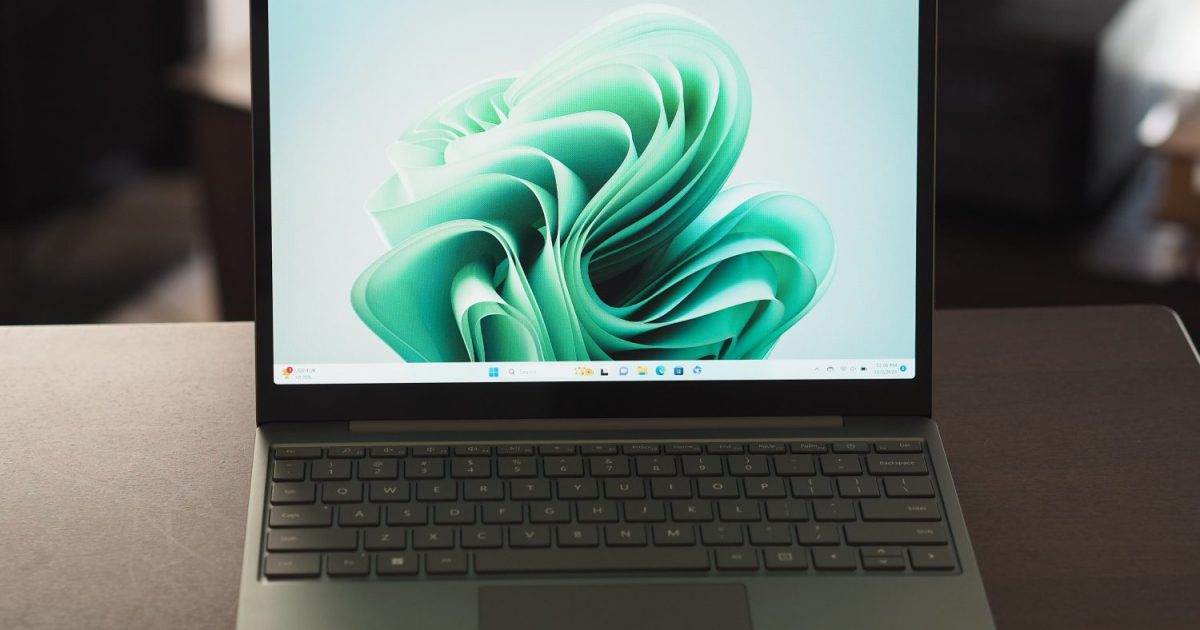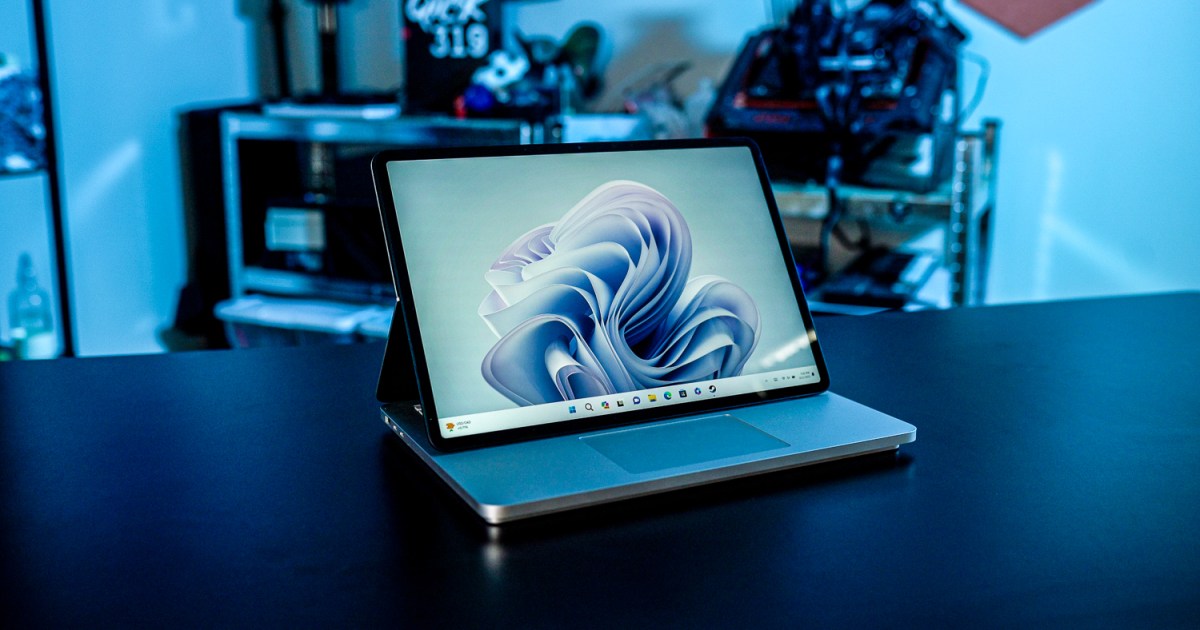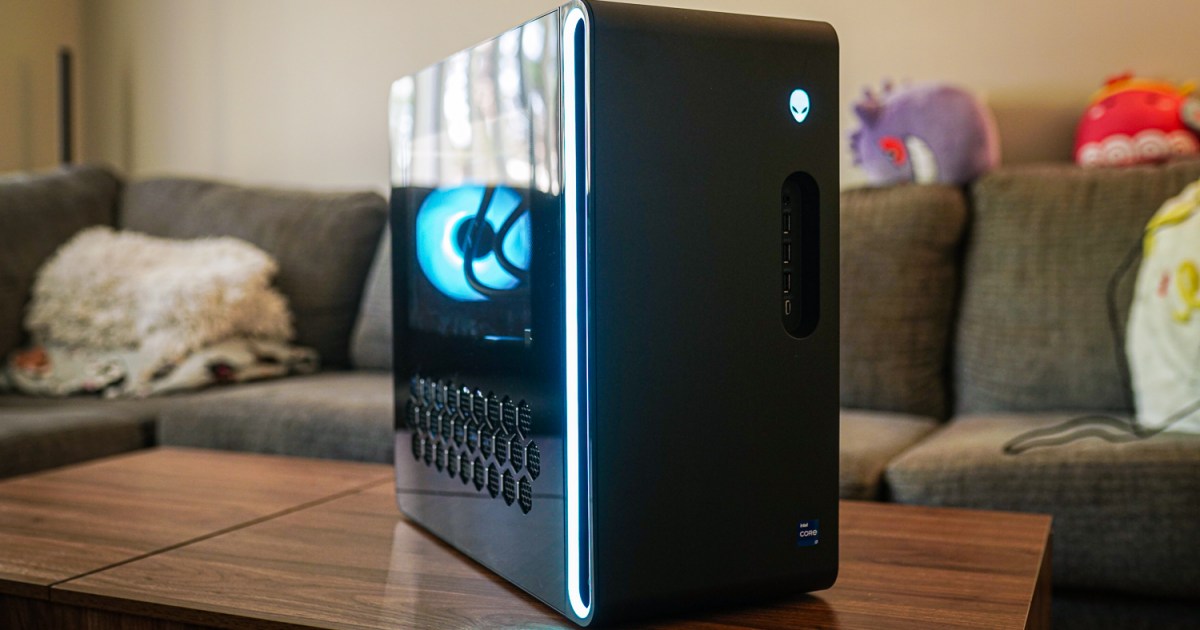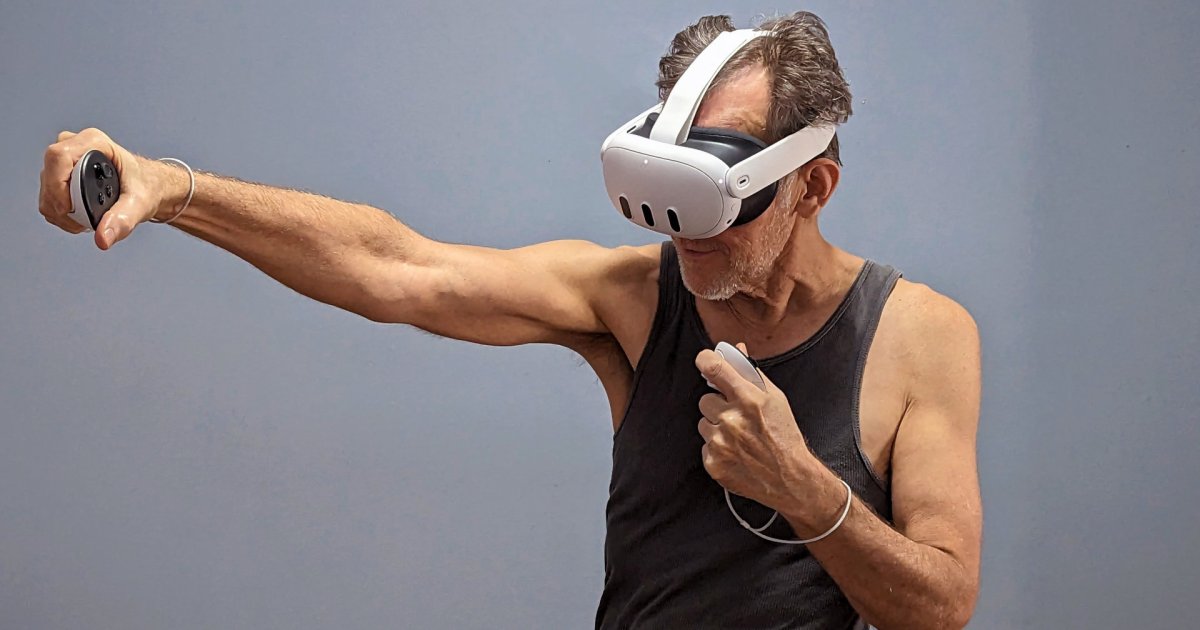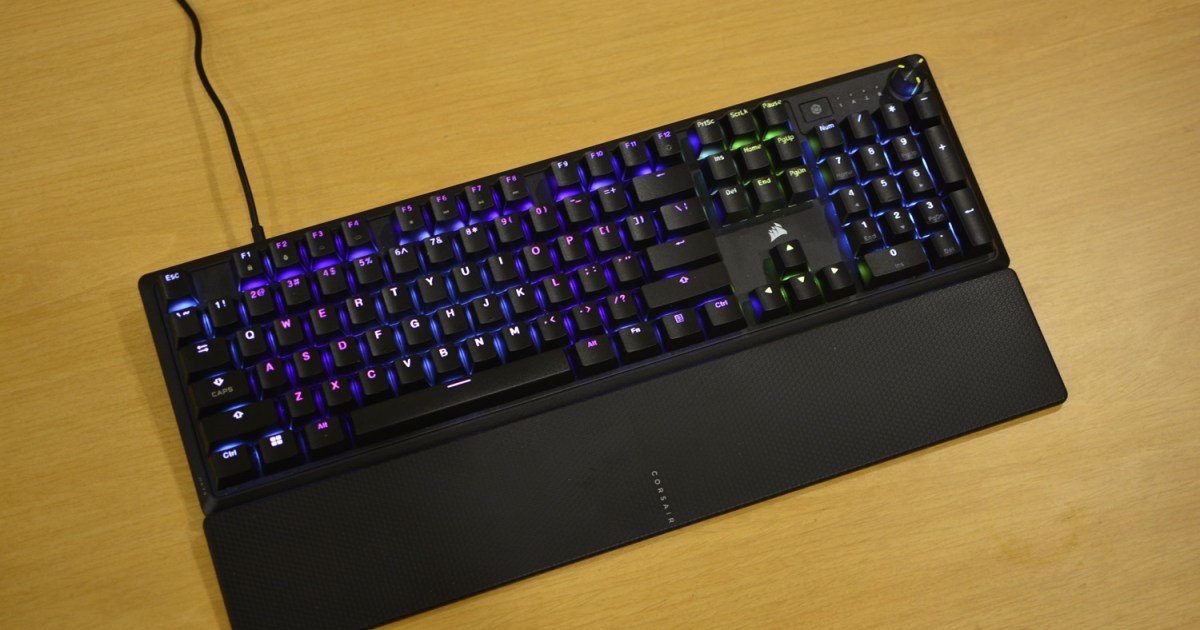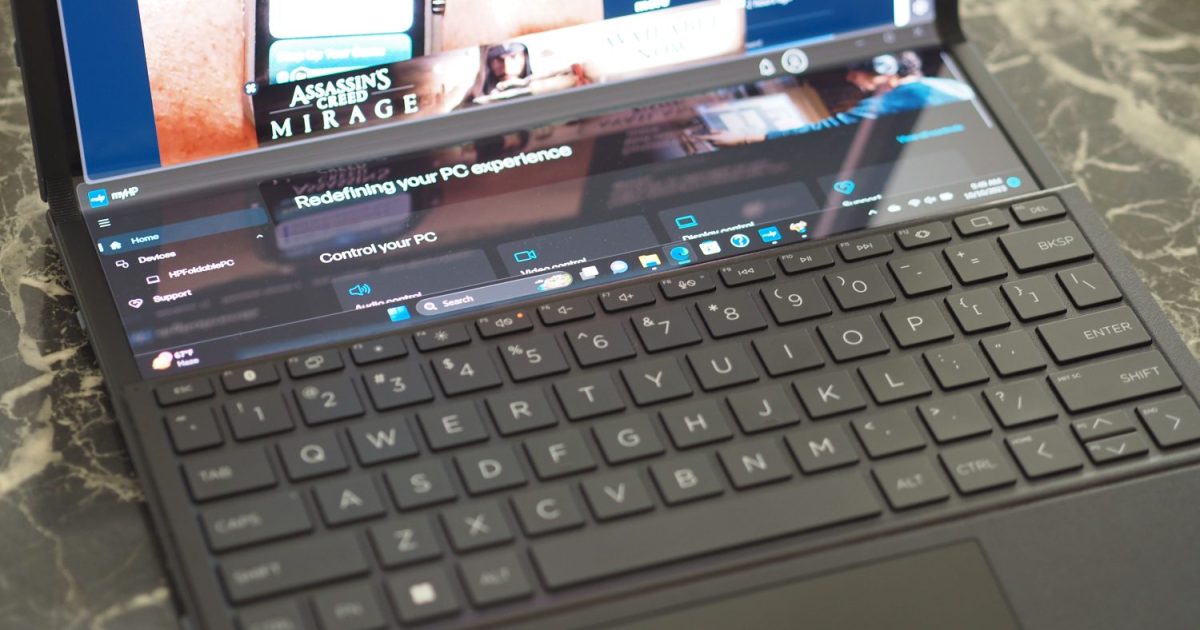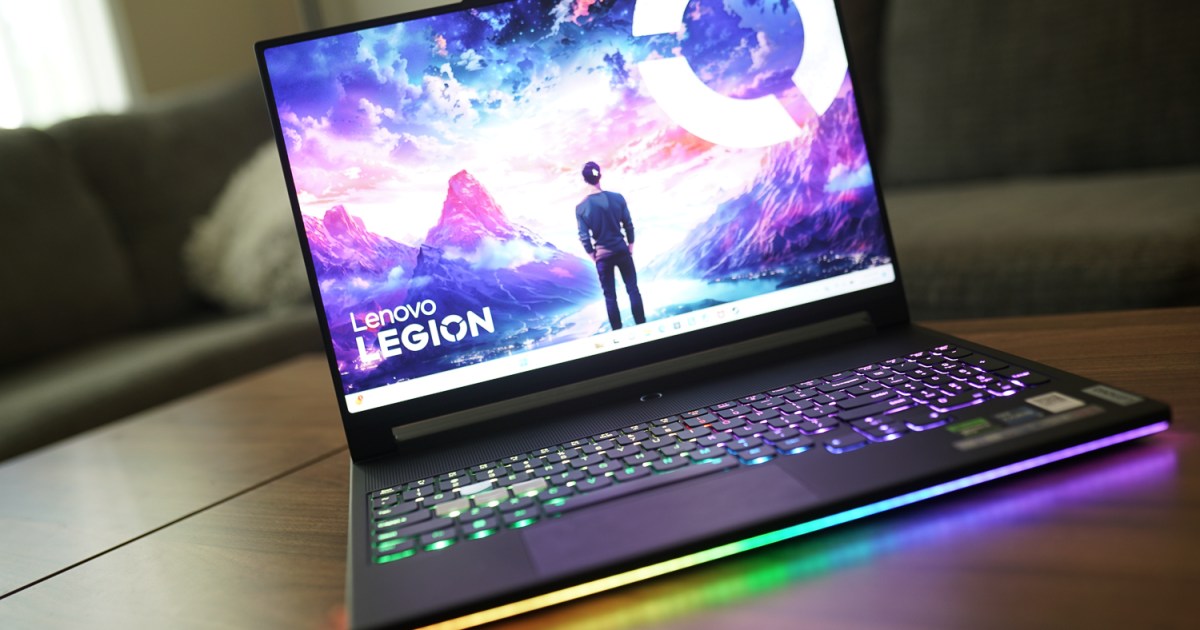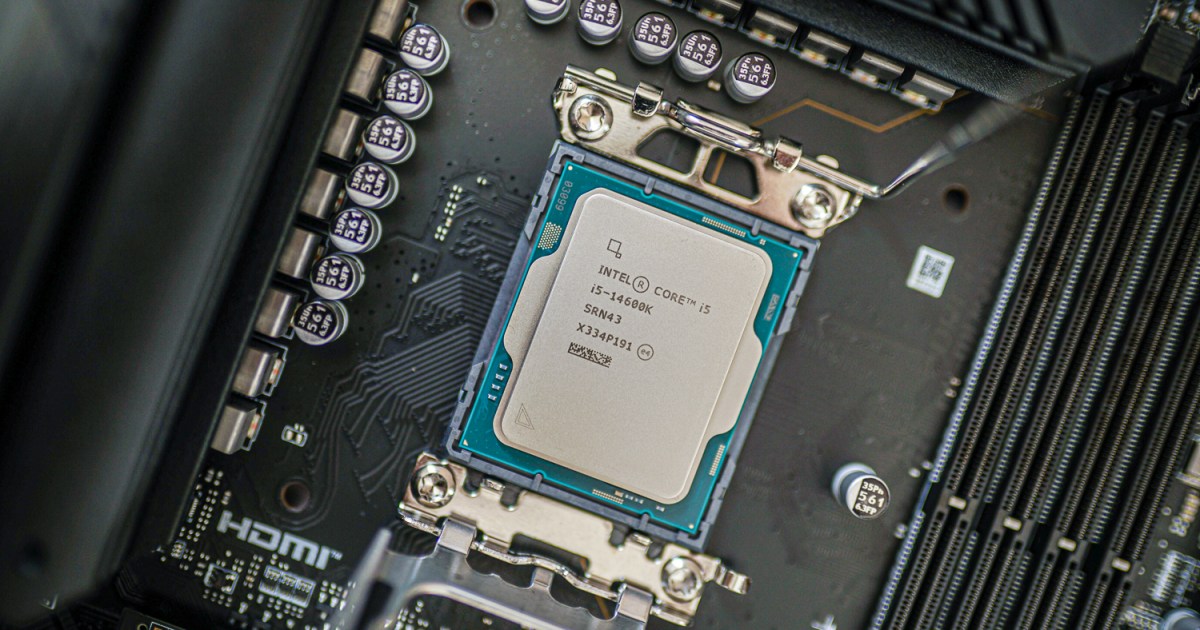Microsoft’s Surface Laptop Go series has traditionally offered a budget-friendly entry point into the laptop market. The third generation, the Surface Laptop Go 3, retains the familiar form factor but sees internal upgrades and a significant price hike, pushing it into the mid-range. Starting at $800 (up from $600 for the Go 2), the Laptop Go 3 faces stiff competition from rivals like the Asus ZenBook 14 OLED. Does it offer anything special to justify the increased cost? Unfortunately, not in our experience.
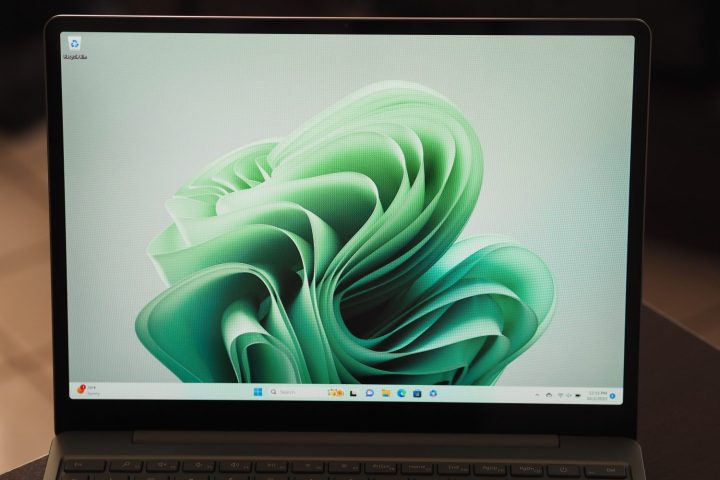 Microsoft Surface Laptop Go 3 front view showing display.Image: The Surface Laptop Go 3’s display, while adequate for basic tasks, is hampered by its low resolution.
Microsoft Surface Laptop Go 3 front view showing display.Image: The Surface Laptop Go 3’s display, while adequate for basic tasks, is hampered by its low resolution.
Specifications and Configurations
| Feature | Microsoft Surface Laptop Go 3 |
|---|---|
| Dimensions | 10.95 x 8.12 x 0.62 inches |
| Weight | 2.49 pounds |
| Processor | Intel Core i5-1235U |
| Graphics | Intel Iris Xe |
| RAM | 8GB / 16GB |
| Display | 12.4-inch 3:2 PixelSense 1536 x 1024 IPS |
| Storage | 256GB SSD |
| Touchscreen | Yes |
| Ports | 1 x USB-C 3.2, 1 x USB-A 3.1, 1 x 3.5mm audio jack, 1 x Surface Connect |
| Wireless | Wi-Fi 6, Bluetooth 5.1 |
| Webcam | 720p |
| Operating System | Windows 11 |
| Battery | 41 watt-hours |
| Price | $800+ |
Microsoft offers two configurations: a base model with 8GB of RAM and a 256GB SSD, and a $1,000 version with 16GB of RAM but the same limited storage. Competitors like the Asus ZenBook 14 OLED offer more compelling value at similar price points, boasting features like a 2.8K OLED touchscreen. At $1,000, the MacBook Air M1 also becomes a strong contender.
Design and Build: Compromises at a Premium Price
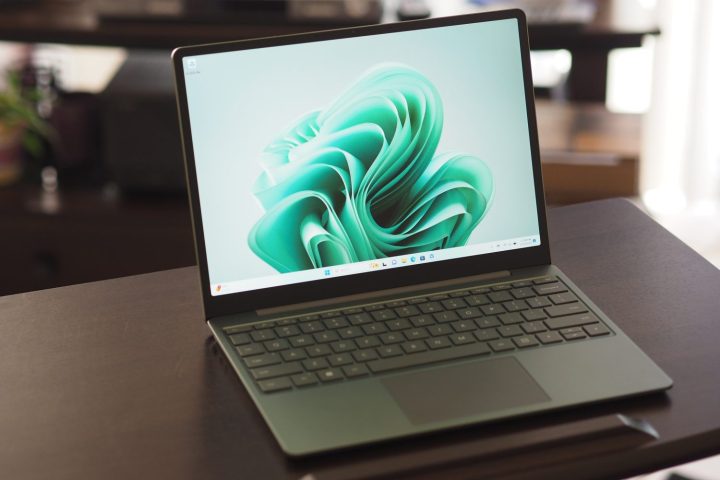 Microsoft Surface Laptop Go 3 front angled view showing display and keyboard.Image: The Laptop Go 3 retains its compact design, but the small keyboard can feel cramped.
Microsoft Surface Laptop Go 3 front angled view showing display and keyboard.Image: The Laptop Go 3 retains its compact design, but the small keyboard can feel cramped.
While many manufacturers are embracing larger displays, the Laptop Go 3 sticks with a 12.4-inch screen. This compact size, while portable, results in a cramped keyboard. The aluminum lid and keyboard deck feel premium, but the plastic bottom chassis feels out of place in this price range. The display also exhibited noticeable flex, a concern for durability. While aesthetically pleasing in its four color options (Platinum, Ice Blue, Sage, and Sandstone), the overall build quality doesn’t match the premium price.
Input Devices: Disappointing Keyboard, Limited Connectivity
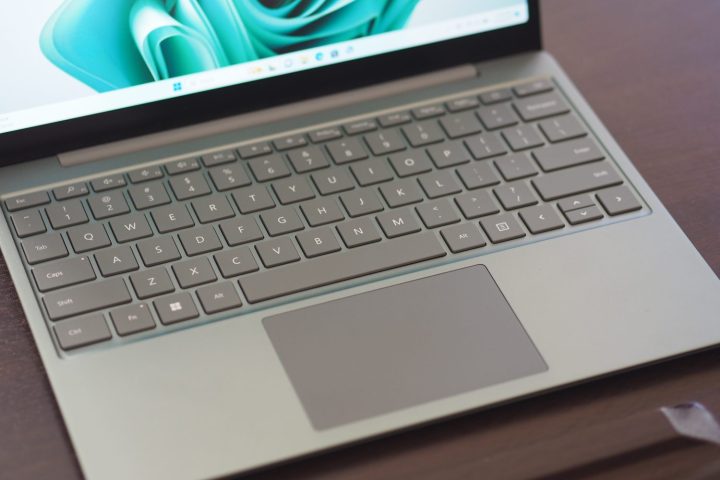 Microsoft Surface Laptop Go 3 top down view showing keyboard and touchpad.Image: The keyboard layout is compact, and the lack of backlighting is a significant drawback.
Microsoft Surface Laptop Go 3 top down view showing keyboard and touchpad.Image: The keyboard layout is compact, and the lack of backlighting is a significant drawback.
The keyboard, a typically strong point for Surface devices, is a letdown on the Go 3. The cramped layout and stiff keys make typing uncomfortable. The lack of backlighting, a feature typically found even on budget laptops, is a glaring omission. The touchpad, while responsive, suffers from loud clicks. Port selection is also limited, with just one USB-C (without Thunderbolt 4) and one USB-A port. Wi-Fi 6 and Bluetooth 5.1 feel dated compared to the latest standards. The 720p webcam is also subpar, especially considering the price. A fingerprint reader in the power button replaces the usual infrared camera for Windows Hello login.
Performance: Underpowered for the Price
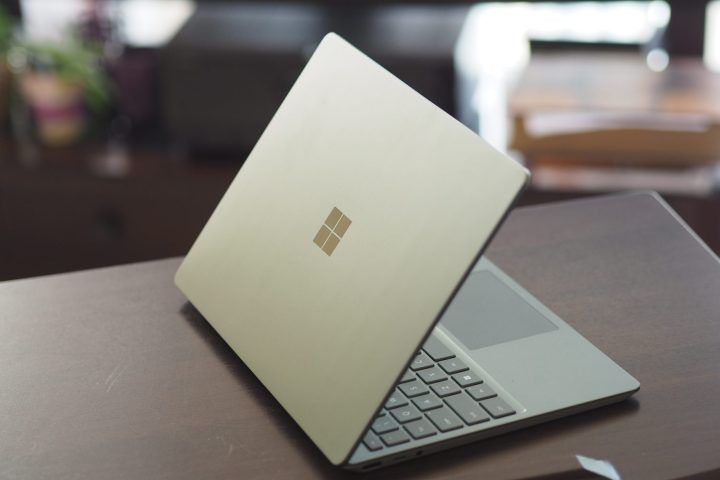 Microsoft Surface Laptop Go 3 rear view showing lid and logo.Image: The Surface Laptop Go 3’s performance lags behind competitors, especially considering its price.
Microsoft Surface Laptop Go 3 rear view showing lid and logo.Image: The Surface Laptop Go 3’s performance lags behind competitors, especially considering its price.
The Core i5-1235U processor, while decent for basic tasks, struggles with demanding workloads. Benchmark results show significantly slower performance compared to similarly priced competitors. While adequate for everyday productivity like web browsing and email, the Laptop Go 3 isn’t suited for multitasking or demanding applications.
| Benchmark | Surface Laptop Go 3 (Balanced / Performance) | Asus Zenbook 14 OLED (Balanced / Performance) | Dell XPS 13 9315 (Balanced / Performance) | Lenovo Flex 5i 14 2023 (Balanced / Performance) | Asus Zenbook S 13 OLED 2023 (Balanced / Performance) | Apple MacBook Air M1 (Balanced) |
|---|---|---|---|---|---|---|
| Geekbench 5 (Single / Multi) | 1,179 / 5,652; 1,524 / 6,226 | 1,457 / 7,527; 1,458 / 8,207 | 1,393 / 4,459; 1,477 / 5,350 | 1,671 / 7,935; 1,679 / 8,268 | 1,829 / 6,893; 1,836 / 6,908 | 1,727 / 7,585 |
| Handbrake (seconds) | 194; 214 | 123; 121 | 333; 192 | 181; 133 | 157; 135 | 156 |
| Cinebench R23 (Single / Multi) | 1,118 / 5,170; 1,534 / 4,894 | 1,457 / 7,527; 1,458 / 8,207 | 1,379 / 3,457; N/A | 1,634 / 6,918; 1,724 / 7,890 | 1,629 / 6,005; 1,827 / 6,962 | 1,479 / 6,680 |
| PCMark 10 Complete | 4,227 | 5,817 | 4,023 | 5,513 | 5,423 | N/A |
Battery Life: Falls Short of Expectations
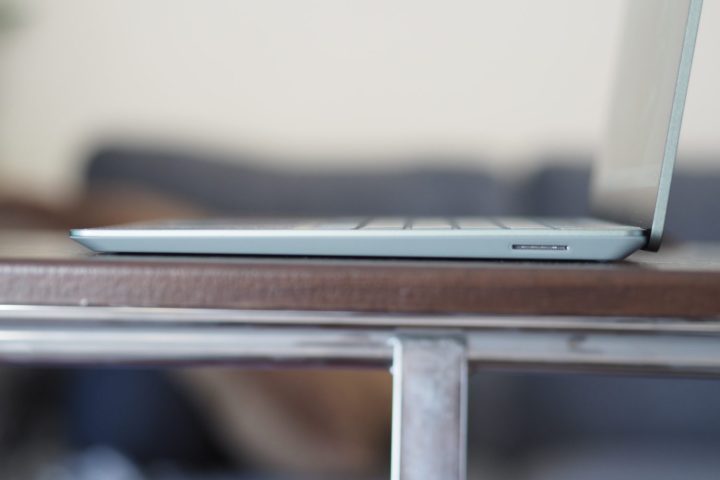 Microsoft Surface Laptop Go 3 side view showing ports and lid.Image: Despite its small size and low-resolution display, the Laptop Go 3’s battery life is underwhelming.
Microsoft Surface Laptop Go 3 side view showing ports and lid.Image: Despite its small size and low-resolution display, the Laptop Go 3’s battery life is underwhelming.
Despite a 41 watt-hour battery, the Laptop Go 3’s battery life is disappointing. Our testing yielded just 6.5 hours of web browsing, significantly less than advertised and behind competitors.
| Test | Surface Laptop Go 3 | Asus Zenbook 14 OLED | Dell XPS 13 9315 | Lenovo Flex 5i 14 2023 | Asus Zenbook S 13 OLED 2023 | Apple MacBook Air M1 |
|---|---|---|---|---|---|---|
| Web Browsing | 6 hours, 29 minutes | 12 hours, 13 minutes | 13 hours, 8 min | 6 hours, 29 minutes | 9 hours, 47 minutes | 15 hours, 31 min |
| Video Looping | 13 hours, 35 min | 17 hours, 19 minutes | N/A | 11 hours, 43 minutes | 15 hours, 14 minutes | 18 hours, 28 min |
Display: Low Resolution Holds it Back
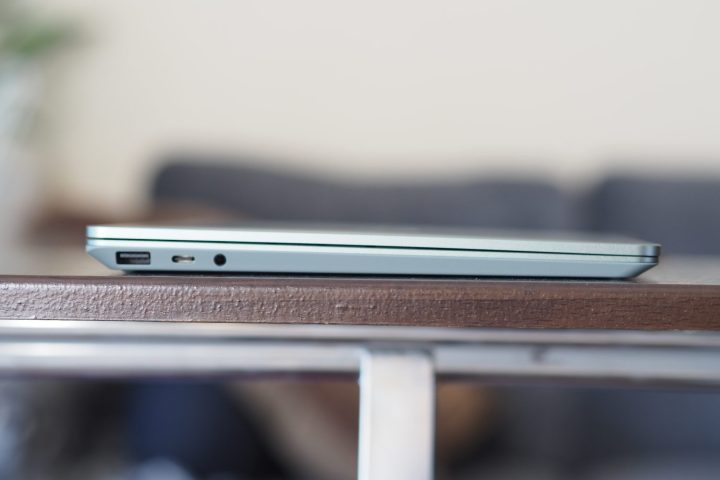 Microsoft Surface Laptop Go 3 left side view showing ports.Image: The Laptop Go 3 offers a limited selection of ports, lacking Thunderbolt 4 support.
Microsoft Surface Laptop Go 3 left side view showing ports.Image: The Laptop Go 3 offers a limited selection of ports, lacking Thunderbolt 4 support.
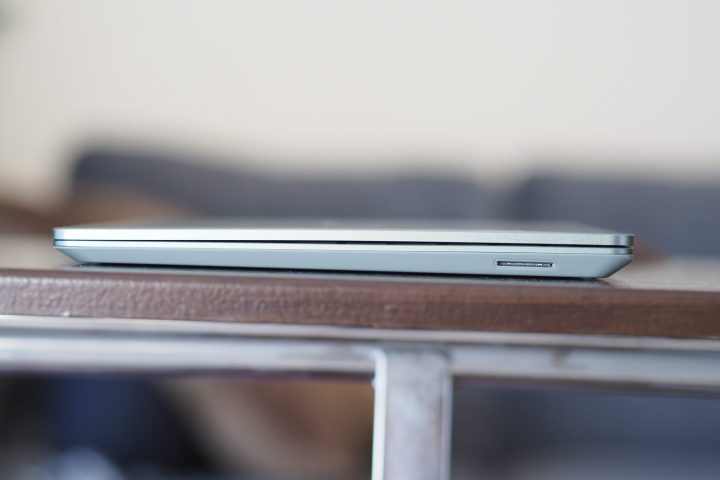 Microsoft Surface Laptop Go 3 right side view showing ports.Image: The Surface Connect port handles power delivery, freeing up the USB-C port for other uses.
Microsoft Surface Laptop Go 3 right side view showing ports.Image: The Surface Connect port handles power delivery, freeing up the USB-C port for other uses.
The 12.4-inch 3:2 aspect ratio display offers decent brightness and contrast. However, the 1536 x 1024 resolution is a major drawback. Text appears pixelated, and video quality suffers. Competitors offer much sharper displays at this price point.
| Measurement | Surface Laptop Go 3 | Asus Zenbook 14 OLED | Dell XPS 13 9315 | Lenovo Flex 5i 14 2023 | Apple MacBook Air M1 |
|---|---|---|---|---|---|
| Brightness (nits) | 354 | 369 | 444 | 329 | 389 |
| Contrast | 1,060:1 | 25,660:1 | 1,390:1 | 1,330:1 | 1,130:1 |
| sRGB Gamut | 96% | 100% | 96% | 63% | 100% |
| AdobeRGB Gamut | 71% | 96% | 75% | 48% | 79% |
| DeltaE | 3.41 | 1.44 | 1.33 | 3.11 | 1.39 |
The audio quality, delivered by OmniSonic speakers, is surprisingly good, offering clear sound with a hint of bass.
Conclusion
The Surface Laptop Go 3’s price increase significantly impacts its value proposition. For the same price or less, competitors offer superior performance, displays, and build quality. The Laptop Go 3’s cramped keyboard, lack of backlighting, low-resolution display, and subpar performance make it difficult to recommend at its current price. While the compact design and decent audio are positive points, they’re not enough to outweigh the numerous shortcomings. At a lower price, the Laptop Go 3 could be a compelling option, but as it stands, there are much better choices available.



